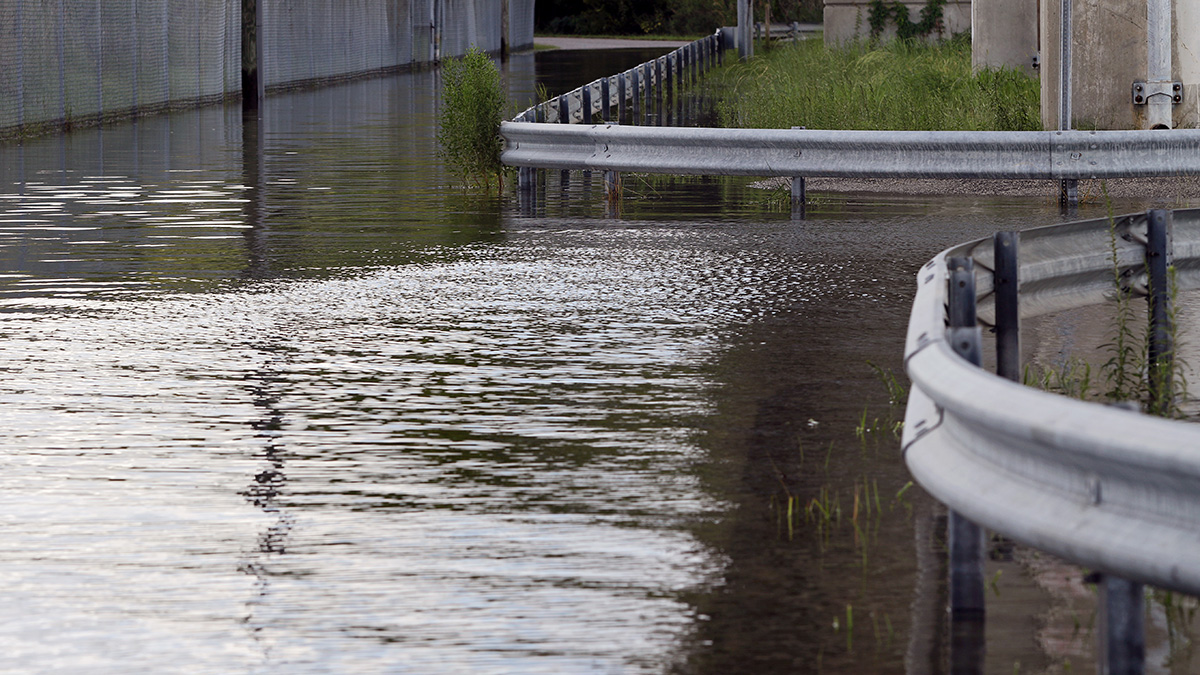
As the coronavirus outbreak continues to ravage the economy, some Hampton Roads cities are cutting funding for resilience and flood mitigation projects.
On Tuesday, Virginia Beach, Chesapeake, Portsmouth and Newport News approved their budgets for the next fiscal year. The votes came as they generate less revenue from taxes on meals and sales because restaurants, hotels and retail stores remain shuttered or empty.
Projecting a loss of up to $14 million due to the pandemic, Portsmouth is slashing its capital improvement fund, which helps pay for the renovation of street infrastructure. And as a relief for many laid off residents, the city is postponing a stormwater tax increase that would help fund resilience projects to January 2021.
Virginia Beach is also facing a $67.3 million revenue shortfall. It’s postponing road elevation projects that would mitigate flooding and delaying a previously-approved stormwater tax increase to next summer.
“I am going to vote for the budget because I’ve never voted against a budget,” Virginia Beach Councilwoman Barbara Henley said during a council meeting Tuesday evening. “But I am very much concerned that what we’re doing is impacting our ability to deal with stormwater and flooding.”
Norfolk, which is projecting a $40 million shortfall next fiscal year, is scheduled to vote on a budget later in May. It’s also considering cuts to resilience funding.
Cities are taking other measures to balance their budgets. Virginia Beach is suspending hiring and implementing a freeze on pay raises for city employees. It’s also delaying the renovation of its municipal center — the site of the 2019 mass shooting.
Virginia Beach officials have said the funding cuts to flood mitigation are necessary to pay for other essential services like education and public safety. The city could reverse some cuts if revenue increases later this year.
Still, Henley said the cuts to resilience could be shortsighted and slow down the city’s response to worsening flooding due to sea level rise. One delayed project is supposed to elevate streets and intersections that often flood in some rural areas in the city.
Skip Stiles, executive director of Wetlands Watch — a Hampton Roads non-profit working to address the rising seas — noted the cuts come as the state is reducing resilience funding amid financial strain. The federal government could also reduce contributions for flood mitigation, he said.
“We’re really getting a double or triple whammy,” Stiles said. “It is going to be a setback for the resilience efforts.”
According to the Hampton Roads Planning District Commission, cities should prepare for at least 1.5 feet of sea level rise by 2050 and 3 feet by 2080. Cities have been exploring different ways to respond. All options require significant funding commitments.
Stiles said he understands municipalities need to use the resilience money to fund essential services. But they must restore flood mitigation funding once revenues stabilize, he said. He doesn’t want a temporary move to become permanent.
“You don’t want this money to get parked and used for other things and then sort of disappear into the general fund,” he said. “You can only delay these things for so long before mother nature is going to catch up with you."




